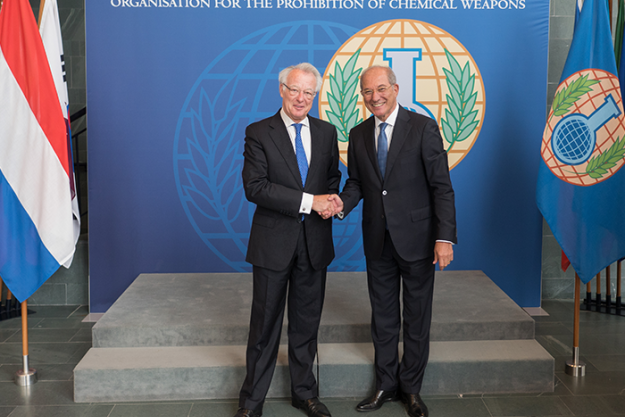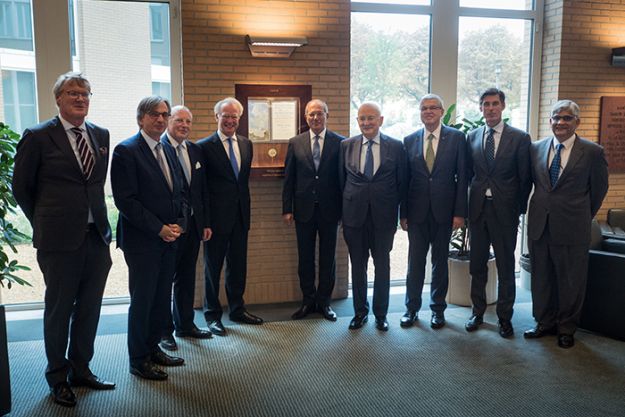
Director-General of the Organisation for the Prohibition of Chemical Weapons (OPCW), Ambassador Ahmet Üzümcü, and the former Mayor of the City of The Hague, H.E. Mr. Jozias van Aartsen
THE HAGUE, Netherlands — 11 September 2017 — The Director-General of the Organisation for the Prohibition of Chemical Weapons (OPCW), Ambassador Ahmet Üzümcü, hosted today a farewell lunch at OPCW Headquarters for the former Mayor of the City of The Hague, H.E. Mr. Jozias van Aartsen, who is presently King’s Commissioner to the Province of Drenthe.
Ambassador Üzümcü expressed his gratitude to Mr. van Aartsen for his unwavering support for the Organisation during his tenure as the Mayor of the host city.
“As Mayor of The Hague, you have been most generous and sensitive to the needs of international organisations, including the OPCW,” said the Director-General during his remarks.

The former Mayor of the City of The Hague, H.E. Mr. Jozias van Aartsen, the Director-General of the Organisation for the Prohibition of Chemical Weapons (OPCW), Ambassador Ahmet Üzümcü, senior officials from the government of the Netherlands and other dignitaries in front of the Nobel Peace Prize awarded to the OPCW in 2013
The lunch was attended by senior officials from the government of the Netherlands and other dignitaries.
Background
As the implementing body for the Chemical Weapons Convention, the OPCW oversees the global endeavour to permanently eliminate chemical weapons. Since the Convention’s entry into force in 1997 – with its 192 States Parties – it is the most successful disarmament treaty eliminating an entire class of weapons of mass destruction.
Ninety-six per cent of all chemical weapon stockpiles declared by possessor States have been destroyed under OPCW verification. For its extensive efforts in eliminating chemical weapons, the OPCW received the 2013 Nobel Prize for Peace.
